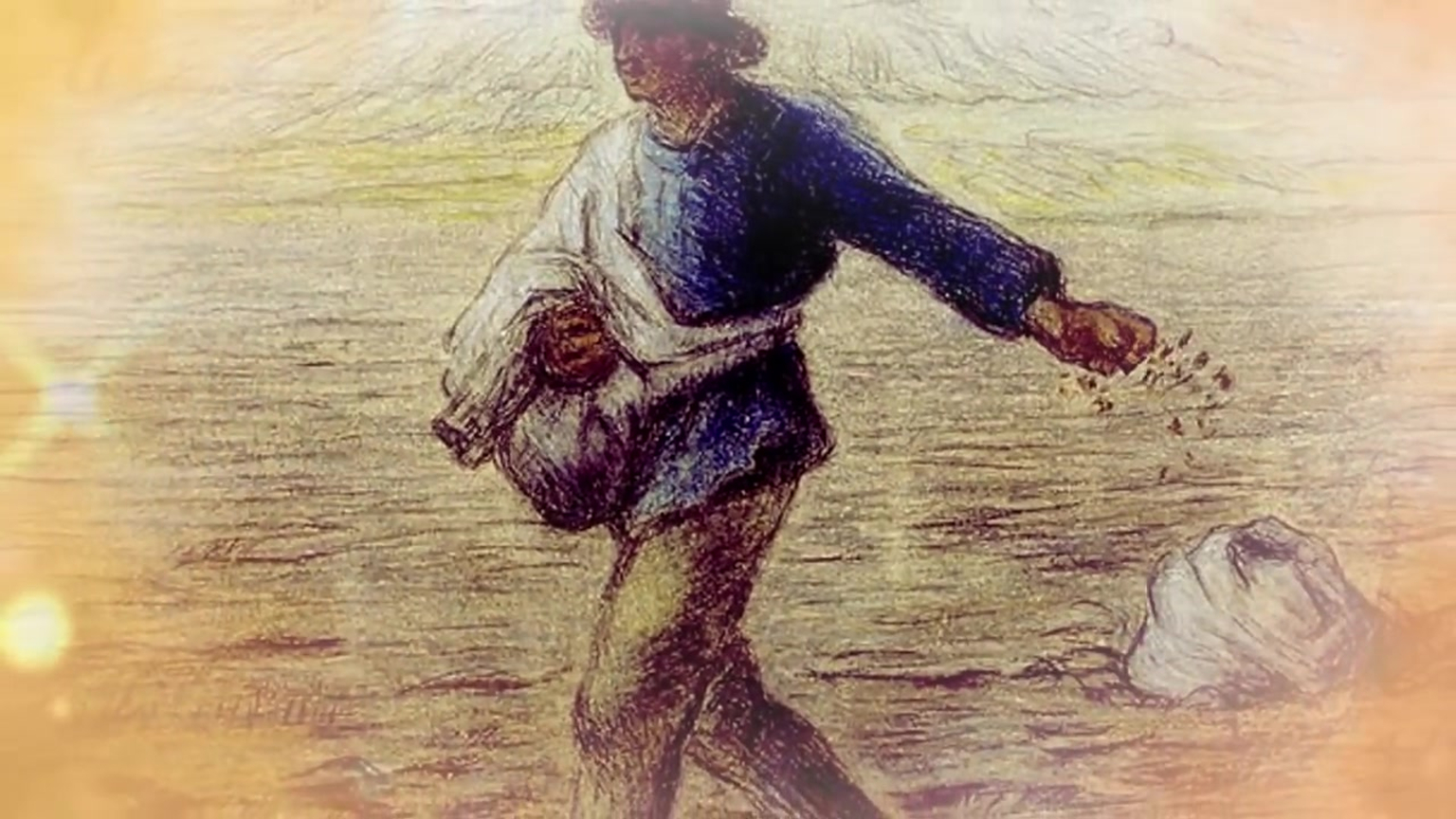
Matthew 13:18
Hear ye therefore the parable of the sower.
Study
Other translations
New International Version
“Listen then to what the parable of the sower means:
New Living Translation
“Now listen to the explanation of the parable about the farmer planting seeds:
English Standard Version
“Hear then the parable of the sower:
Berean Study Bible
Consider, then, the parable of the sower:
Berean Literal Bible
You, therefore, hear the parable of the one having sown:
New King James Version
“Therefore hear the parable of the sower:
New American Standard Bible
“Listen then to the parable of the sower.
Amplified Bible
“Listen then to the [meaning of the] parable of the sower:
□ ■ □
Hear ye therefore
The “ye” is emphatic.
The interpretation which is withheld from others is given to you.
Hear ye therefore the parable of the sower
A parable which our Lord judged to be so important that he introduced it with a double demand of attention, Hearken, behold Mark 4:3); and concluded it with a third, and still more solemn demand thereof, “who hath ears to hear, let him hear”; and here, proceeding to the explanation of it, he calls for attention the fourth time.
The reason of this is evident: the parable sets before us, in a summary point of view, all the grand hinderances of our bearing fruit, and that in the same order in which they occur.
The first danger is, lest the birds should devour the seed, or it should be trodden down.
If it escape this, there is then another danger, namely, lest it be scorched, and wither away. It is long after this that the thorns spring up and choke the good seed. A vast number of those who hear the word of God, receive the seed as by the way-side.
Of those who do not lose it by the birds, yet many receive it as on one stony places.
Many of them who receive it on a better soil, yet suffer the thorns to grow up and choke it: so that few even of these endure to the end, and bear fruit unto perfection: yet in all these cases, it is not the will of God that hinders, but their own voluntary perverseness.
Greek
Consider ☆ ἀκούσατε (akousate) ☆ Verb – Aorist Imperative Active – 2nd Person Plural ☆ To hear, listen, comprehend by hearing; pass: is heard, reported. A primary verb; to hear.
then ☆ οὖν (oun) ☆ Conjunction ☆ Therefore, then. Apparently a primary word; certainly, or accordingly.
the ☆ τὴν (tēn) ☆ Article – Accusative Feminine Singular ☆ The, the definite article. Including the feminine he, and the neuter to in all their inflections; the definite article; the.
parable ☆ παραβολὴν (parabolēn) ☆ Noun – Accusative Feminine Singular ☆ From paraballo; a similitude, i.e. fictitious narrative, apothegm or adage.
of the ☆ τοῦ (tou) ☆ Article – Genitive Masculine Singular ☆ The, the definite article. Including the feminine he, and the neuter to in all their inflections; the definite article; the.
sower ☆ σπείραντος (speirantos) ☆ Verb – Aorist Participle Active – Genitive Masculine Singular ☆ To sow, spread, scatter. Probably strengthened from spao; to scatter, i.e. Sow
Read more of these messages at: https://devotionals.harryschoemaker.nl
Download your Bible pictures from: http://bijbelplaatjes.nl
Follow me on Twitter: @schoemakerharry
Email: devotionals@harryschoemaker.nl





